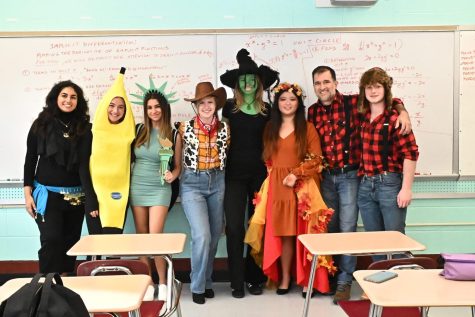This HuG is Okay Even if You’re Social Distancing

I’ll admit, I had no idea what Human Geography was when I signed up for it my freshman year. It was just a class on a long list of classes they offered me, and I had enjoyed geography in years past, so I signed up for it (I also, at the time, didn’t know what an AP class was. I think I thought “College Prep” was more difficult than “Advanced Placement.” Just a small tip for incoming freshmen: make sure you know what the classes you’re taking are actually about before signing up for them.)
Regardless, I sat there on the first day of high school, one of two freshmen in the class, and listened to an explanation of what exactly I had signed up for.
AP HuG is the study of how humans interact with geography, which doesn’t necessarily sound that interesting at first, but turned out to be one of the most interesting classes I have taken in my high school career. In fact, as a senior, I wish I could go back and retake HuG, because I find that more and more of the information is slipping away, and I think the class would still be fascinating taking it a second time around.
HuG can be sort of a difficult class to explain to someone who has never taken it. I like to think of it as the principles of history. You know in English class when, before you read a piece of literature, you first learn about all the basics of literature? Metaphors, similes, syntax, rhythm, personification, character development, plot structure, and all that good stuff? And then, when you read the story, you apply those principles to whatever piece you’re reading. Human Geography is a lot like those principles: it is history without the story, just the reasons people do the things they do.
HuG answers a lot of questions people never thought about. Why do different regions of the country have different accents? Why do enclaves like Little Italy or Chinatown form the way they do in New York City? Why do we represent places on maps the way we do? Is race real? How does the way people think about these things impact the world?
Throughout the rest of my high school career, whenever I was in a social studies class, I found myself referencing aspects of HuG. We study migrations, culture, politics, agricultural, and a whole host of other things dealing with human behavior. There’s really no class like it in the school; it’s an assortment of different parts of humanity.
So, if you’re a history person, I highly recommend the class. It is one of those rare academic settings that truly changes the way you see things. I still read news articles, and think of different models that were first presented to me in that class. My friends and I still discuss some of the things we first learned about in HuG. I see things differently… all because of Human Geography.














